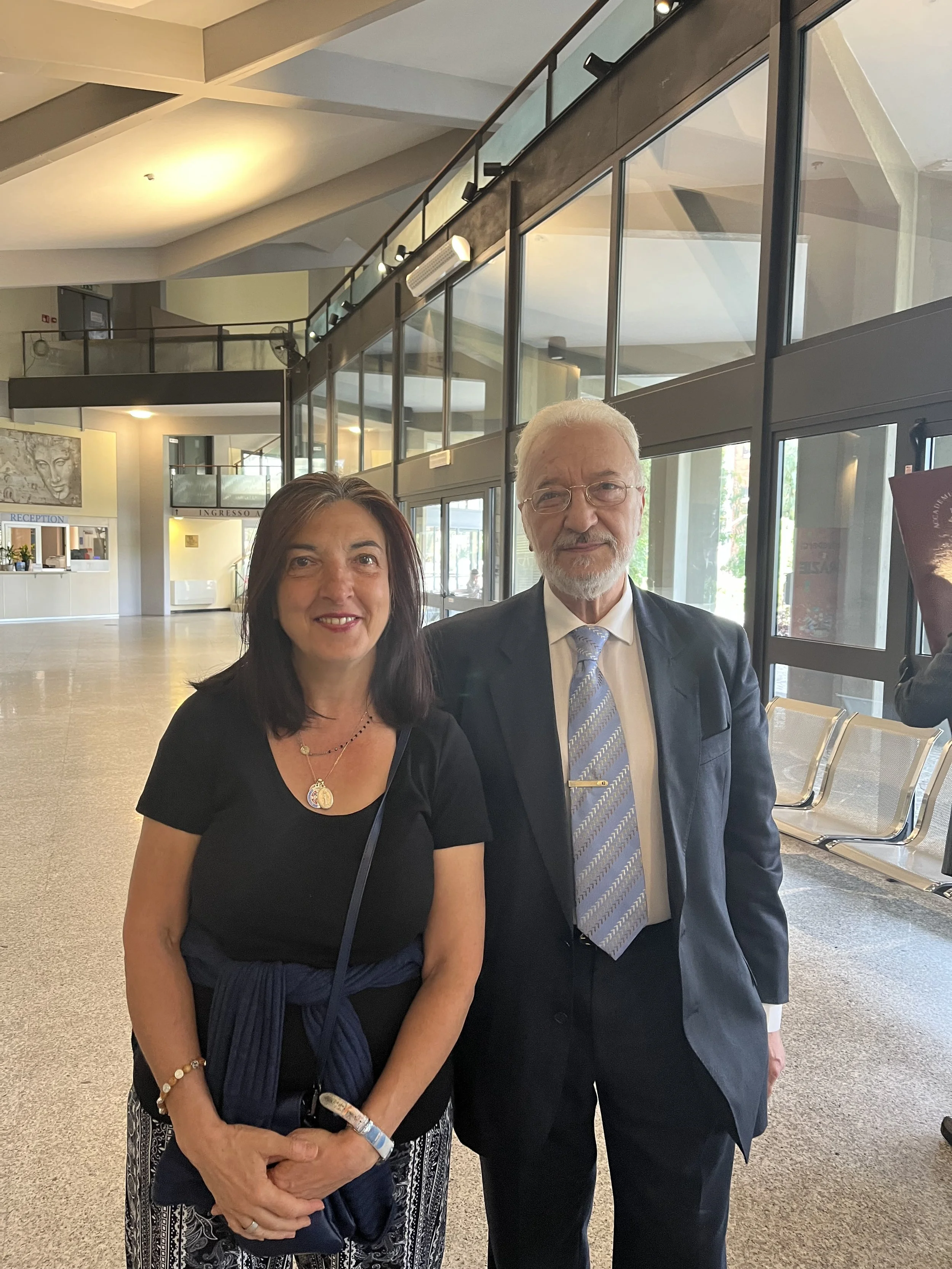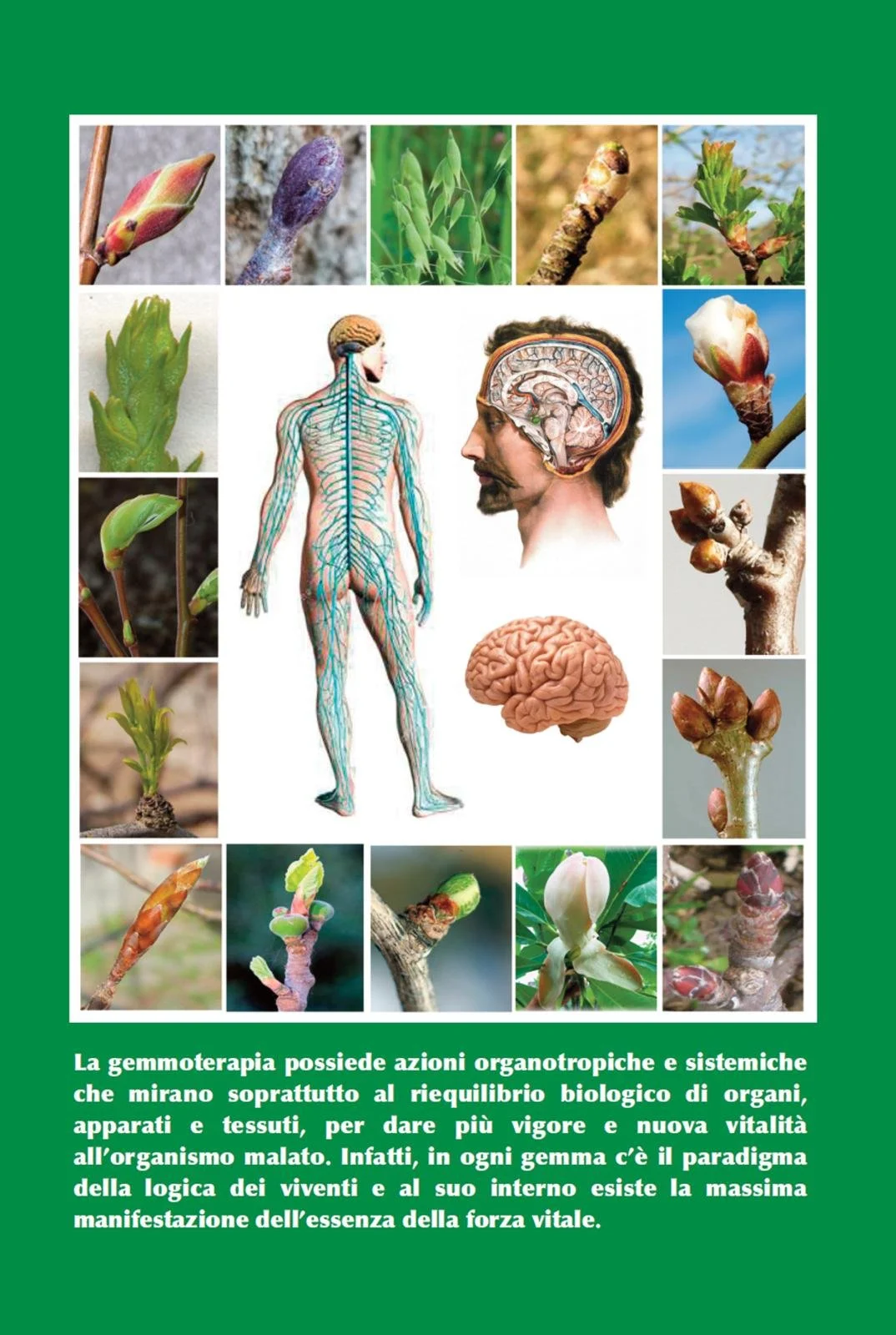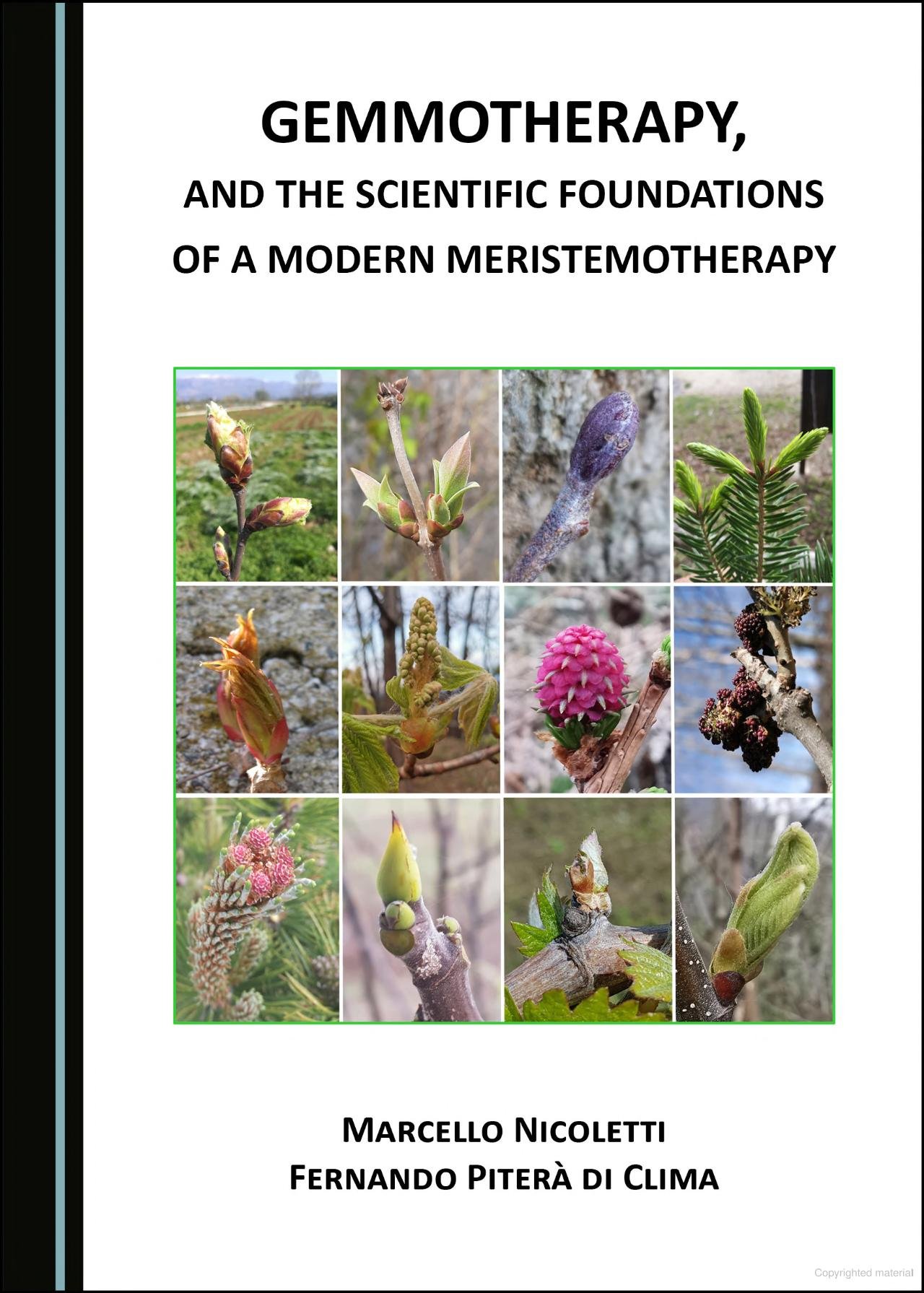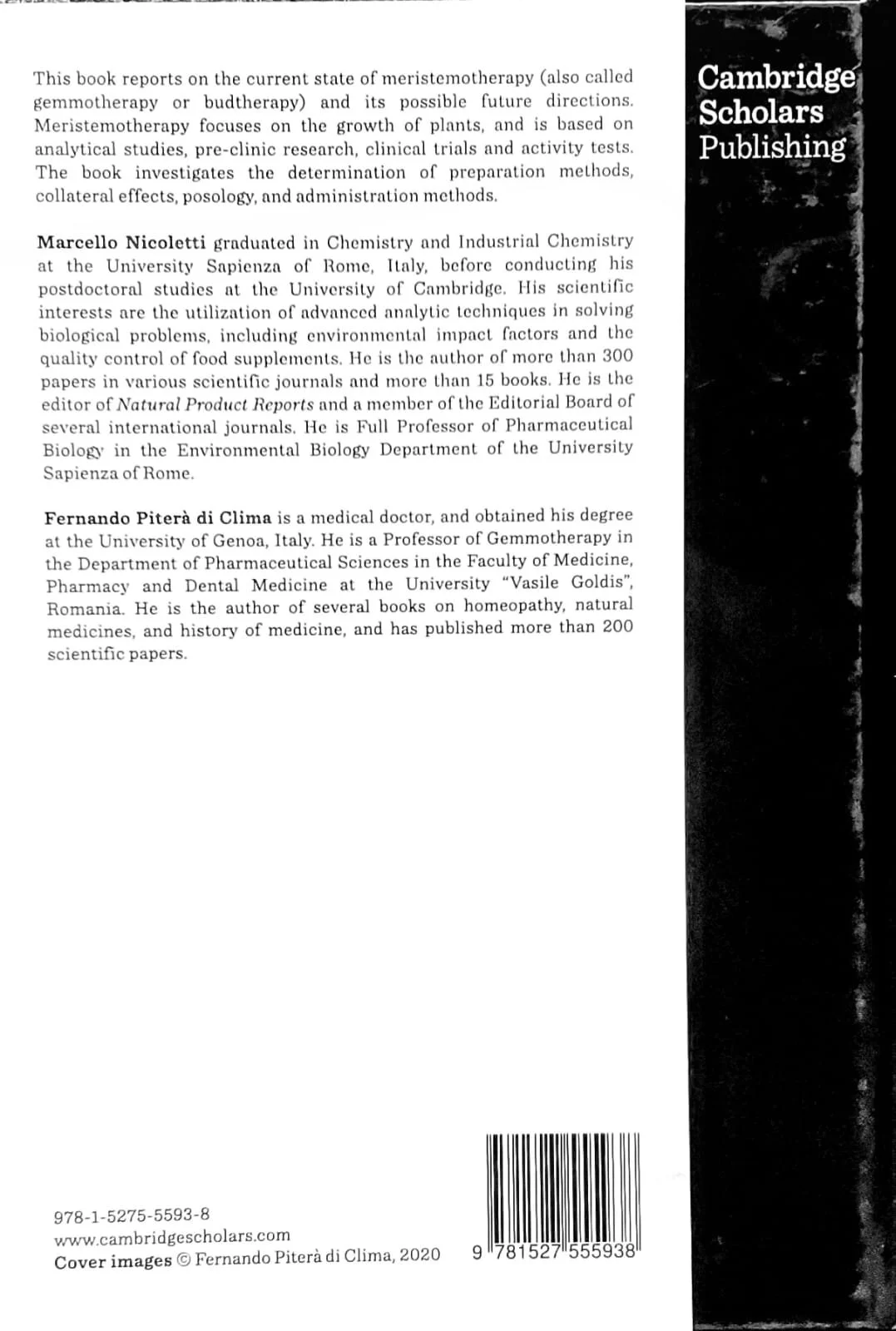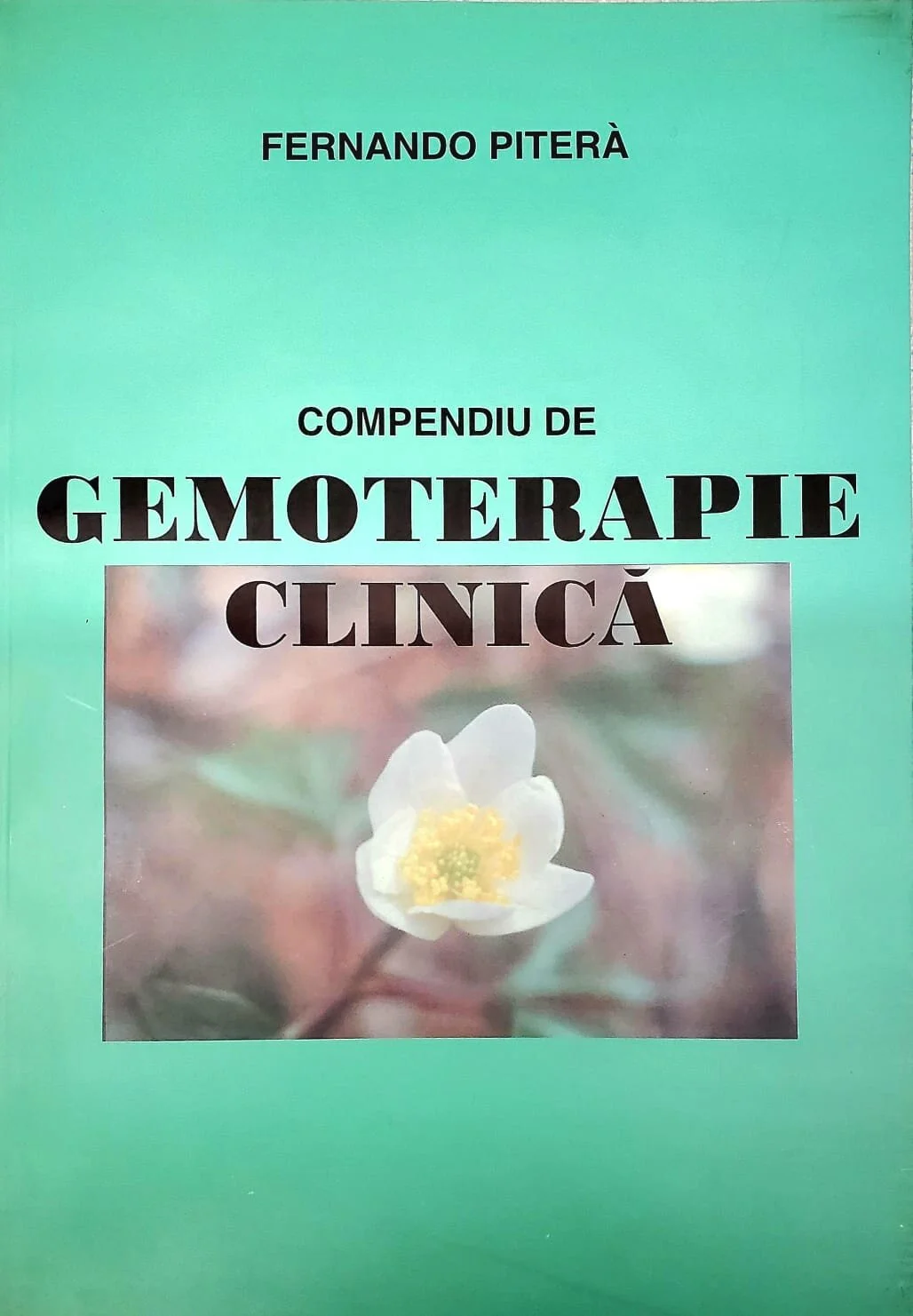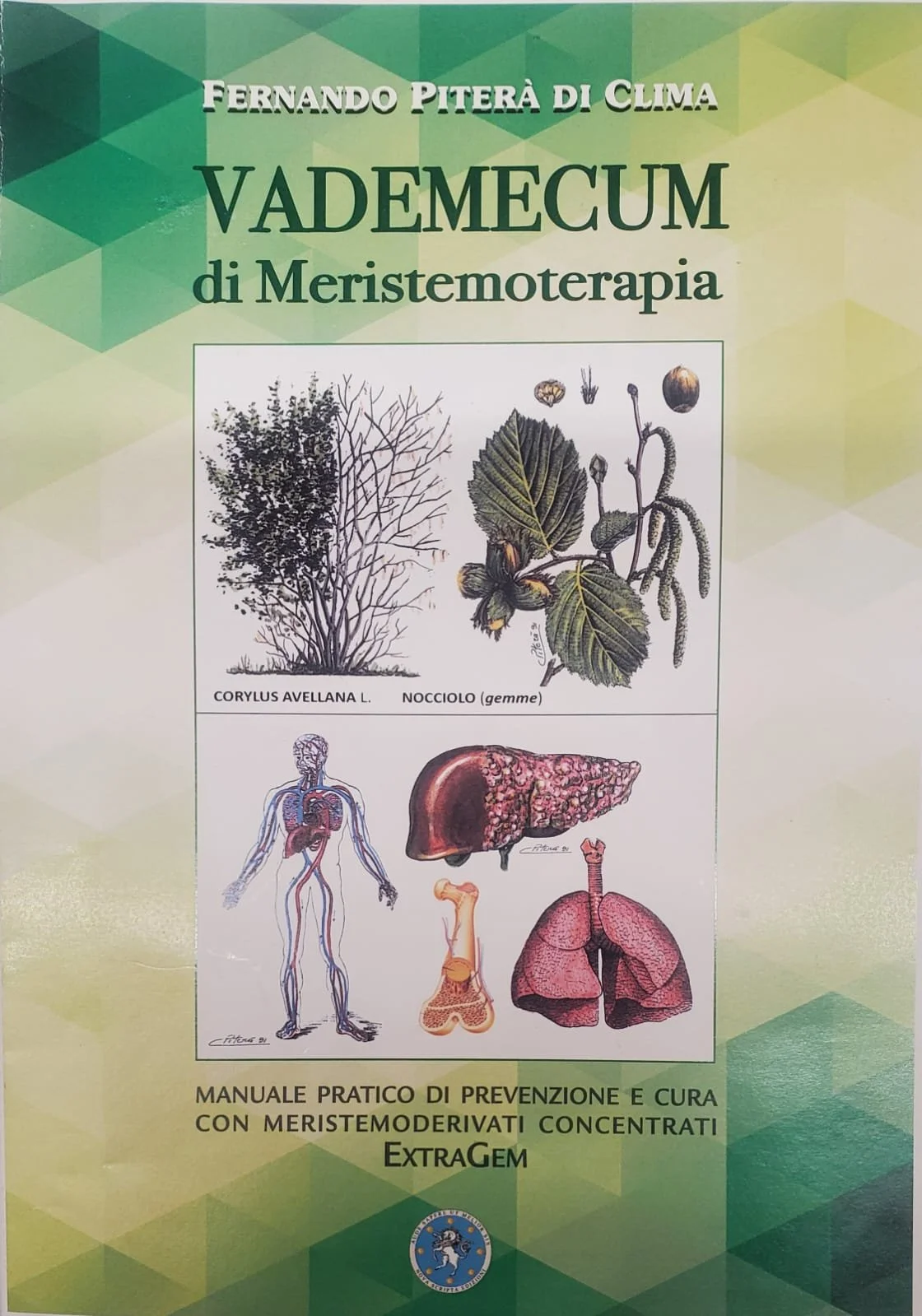Meristemotherapy
Consultation
Also known as Phytoembryotherapy,
Plant Stem Cell therapy or Gemmotherapy, it is a branch of Botanical medicine
Meristemotherapy is a therapeutic method for the prevention and treatment of acute and chronic diseases (human and veterinary), which uses the medicinal properties of extracts obtained from fresh plant tissues still in the process of growth - plant embryonic tissues (staminal cells) which contain all of the plant's genetic information and concentrated therapeutic properties
-

PHYTO-MERISTEMOTHERAPY OF URINARY SYSTEM IN NEPHROLOGY
-

METABOLIC SYNDROME IN MERISTEMOTHERAPY
-

PHYTO-MERISTEMOTHERAPY FOR IMMUNE SYSTEM
-
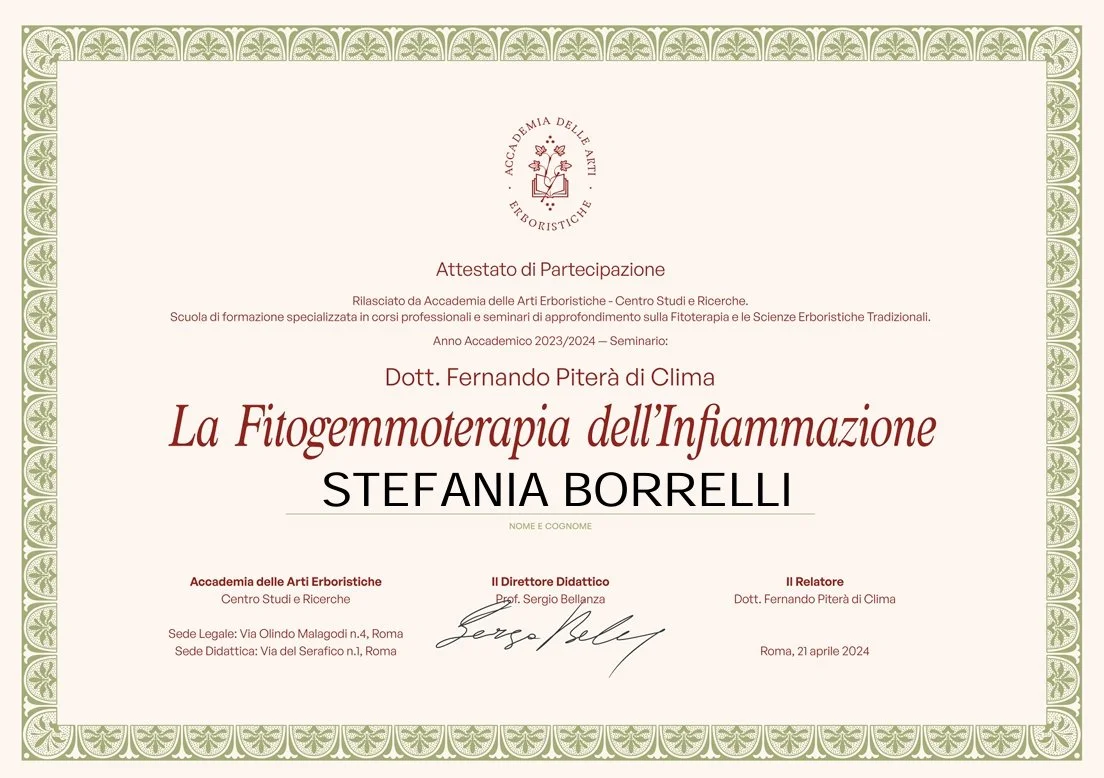
PHYTO-MERISTEMOTHERAPY OF INFLAMATION
-

MERISTEMOTHERAPY FOR THE NERVOUS SYSTEM
Professor Fernando Piterà de Clima - the guiding force behind the spread of gemmotherapy research to Italy - is a surgeon graduated from the University of Genoa. He specializes in phytotherapy, homeopathy, and homotoxicology.
He was a lecturer in Alternative Medicine and Complementary Techniques at the Faculty of Medicine and Surgery of the University of Milan from 2000 to 2009. He also taught gemmotherapy at the Department of Pharmaceutical Sciences of the Faculty of Medicine, Pharmacy, and Dentistry of the Vasile Goldiş University in Arad, Romania.
He lives and works in Genoa, where he practices medicine. He has written numerous books and articles for international journals.
Piterà’s work has proven that Gemmotherapy, based on meristems, is able to extend its action beyond to the organic and cellular levels while classical herbal therapy works only at the functional and metabolic level.
What is Meristemotherapy
Meristemotherapy (Phythoembriotherapy or Gemmotherapy) is a branch of phytotherapy that uses embryonic plant tissues, such as buds, young shoots, and buds, to promote health and well-being. These tissues, being in the growth phase, are particularly rich in vital substances such as vitamins, minerals, enzymes, and plant hormones, which give them unique therapeutic properties.
Origins and principles of gemmotherapy
In the 1950s, Belgian physician Pol Henry began studying the therapeutic effects of plant embryonic tissue, coining the term "embryonic phytotherapy." The concept was later developed by French physician Max Tétau, who renamed it "gemmotherapy." Gemmotherapy is based on the idea that plant embryonic tissue contains high concentrations of active ingredients, such as auxins, gibberellins, and cytokinins, which can offer therapeutic benefits to humans.
Preparation of gemmoderivatives
Gemmotherapy remedies, known as bud extracts, are prepared by macerating fresh embryonic tissue in a mixture of water, alcohol, and glycerin. This process extracts and preserves the active substances present in young tissue, providing a concentrated version of the plant's beneficial properties.
The preparation of bud extracts follows a specific protocol:
Harvest: The buds and young tissue are harvested in early spring, when they are at their peak development.
Maceration: The fresh plant material is immersed in a glycerin and alcohol solution for three weeks.
Filtration: After maceration, the solution is filtered to obtain the basic glycerin macerate. Dilution: The macerate is diluted in a mixture of glycerin, alcohol, and water to obtain the final product, ready for use.
Benefits and Applications of Gemmotherapy
Gemmotherapy is used to support various aspects of health, thanks to the specific properties of different gemmotherapy products.
Here are some of the most common applications:
Immune System Support: Blackcurrant (Ribes nigrum) glycerine macerate is valued for its anti-inflammatory and immune-stimulating properties.
Nervous System Balance: Fig (Ficus carica) gemmotherapy is used to promote nervous and digestive system balance, helping manage stress and anxiety.
Detoxification: Birch (Betula pubescens) gemmotherapy is used for its draining and purifying properties, promoting the elimination of toxins from the body.
Joint Health: Grapevine (Vitis vinifera) gemmotherapy is indicated for supporting joint health and counteracting inflammatory processes.
It's important to note that the effectiveness of gemmoderivatives can vary from person to person, and it's always advisable to consult a Natural healthcare Practitioner before starting any treatment.
Textbooks
Italian
English
French
Rumenian
“Nowadays it is possible to state that Gemmotherapy can be considered a natural method for the prevention and treatment of acute and chronic diseases.”
— Doctor Fernando Pitera’ de Clima - Gemmotherapy, and the Scientific Foundations of a Modern Meristemotherapy , by Marcello Nicoletti, Fernando Piterà di Clima
Dr. Marcello Nicoletti, PhD, co-author of the book, is a professor of Pharmaceutical Biology at Environmental Biology Department of the University Sapienza of Rome. Graduated in Chemistry (1974) and in Industrial Chemistry (1976) at the University Sapienza of Rome, Italy. Later, he went on to complete a Postdoctorate at the University of Cambridge (England). He has spent several years in many countries of South America and Africa, studying the plants utilized in local traditional medicine and later antimalarial alkaloids and glycosides to treat benign prostatic hypertrophy.
He is director of the Master in Phytochemistry and professor in the PhD in Environmental and Evolutionary Biology. Member of Italian Phytochemical Society, and vice-president of SILAE, the Italian Pharmacognosy Society.
Author of more than 300 papers in international scientific journals, of several books and chapters of special issues and books. More than 100 of his most recent papers and book chapters have been dedicated to the control of insect-borne diseases using new natural substances and plant-derived products. Recently, Dr. Nicoletti’s interests have turned to Meristemotherapy, a medical approach based on utilization of juvenile plant tissues to treat several pathologies. He wrote a book on this topic alongside Dr. F. Piterà called Gemmotherapy, Scientific foundations of a Modern Meristemotherapy, which has been translated into several languages.

